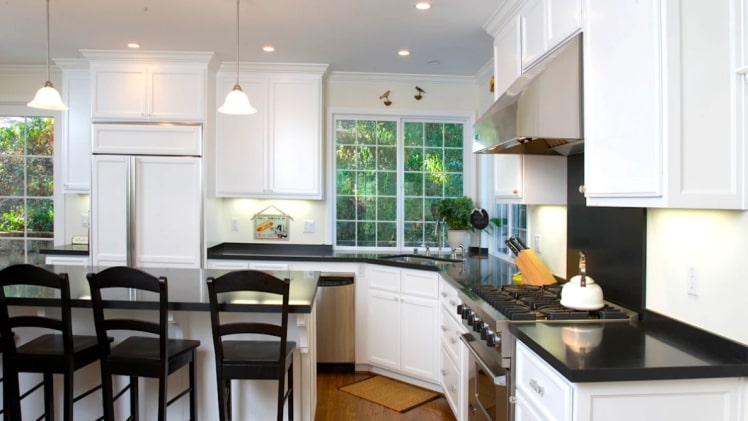Are you considering remodeling your kitchen? Whether you’re aiming for a fresh, new look or hoping to update aging appliances and cabinets, there are some secrets to successful full kitchen renovation canberra that can make the process go a lot more smoothly. Here are nine of them
1. Gather Your Inspiration
One of the most important aspects of kitchen renovation is doing research beforehand. If you’re not sure where to start, consider sites like Houzz and Pinterest for ideas on what your dream kitchen might look like. Alternatively, if you’re more inspired by photos of beautiful kitchens northern beaches than online images, magazines are another great place to get design ideas for your home.
As you gather inspiration, be sure to take notes of which rooms or areas in the house you want to use as cues for decorations and color schemes. Also write down which of those styles you like best; this will come in handy when it’s time to shop at local home improvement stores later on.
2. Create a Plan
If you don’t already have one in place, now is the time to come up with a plan for your kitchen renovation.
First, make a list of all necessary updates. For example, you might need new countertops or cabinets. Then think about what specific changes you want to make or which parts of your kitchen are most outdated that you’d like to modernize. If there are appliances that you’re ready to replace, purchase them before starting renovations so they can be installed at the proper time. Finally, create a timeline so all steps are scheduled in an orderly fashion.
3. Determine Your Budget
Before committing to any updates or renovations, determine how much money you have available for this project and write it down in your plan. This way it won’t get lost in the shuffle and forgotten about.
When budgeting, be sure to include both start-up costs—the product purchases you need to make before beginning your kitchen renovation—and long-term maintenance expenses. This way you can make a plan for all necessary expenditures without going over your predetermined amounts.
4. Shop Around
Now it’s time to do some shopping! With a list of updates or renovations that you want completed, visit local home improvement stores and talk with employees about purchasing products already on your list as well as items that may not have been included but could complete your desired end result more easily or cheaply.
Be aware of the fact that different stores often carry different brands, styles, colors, sizes, etc., that the selection of a specific product you want may not be available at one store but can be found at another.
For example, if you’re looking for replacement kitchen cabinets in the style of Restoration Hardware but aren’t having any luck finding them in person, try searching online or asking friends where they purchased their cabinets. Armed with these alternative options, knowing where to shop will save time and help ensure your renovation goals are met.
5. Select Your Contractor
Before calling contractors, make sure to check their references, licenses, insurance information, certifications, etc., because this is an investment in your home. When interviewing contractors about previous projects, don’t just ask about completed jobs; find out how they communicate with clients and manage schedules as well. The contractor you choose should be someone who is both professional and easy to work with.
When first meeting a contractor, ask them about their experience with kitchen renovations. If they’ve only worked on small bathroom or other relatively simple projects, they may not have the expertise necessary for a larger undertaking like your kitchen renovation. Be sure to set aside enough time in your interview to discuss all project details so there won’t be any misunderstandings later on.
Then, give each potential candidate an estimate of what you’re looking to spend and let them know how soon you’d like proposals returned so that everyone knows what kind of budget and timeline they’ll be working within. You can also ask if your contractor does any work with home improvement stores because this can help you save money.
6. Design Your Kitchen
If your contractor doesn’t have an in-house designer, be sure to hire one or visit local design centers so that you can discuss what you want the kitchen renovation to look like before much work is done. This will ensure all parties are on the same page and there won’t be any surprises later on.
During your initial consultation with a designer, find out about their experience and make it clear whether you want them to stick closely to your plan for the renovation or create something new from scratch. Be mindful of how many revisions they’ll provide free of charge because some people may not allow as many changes as others during this process and try to get a sense of how long the designer takes to turn around these kinds of projects.
If you’re not sure where to begin, have your designer survey the current state of your kitchen and offer suggestions on what could be done differently or improved upon before asking for a completely new design that breaks the bank. It’s always easier to work with an existing plan instead of starting from scratch because it can help you stay within budget.
7. Hire Subcontractors
Once you’ve chosen a contractor, let them know about any sub-contractors they should hire, especially if they don’t have experience creating specific types of details for kitchens or other rooms in your home. You may want to call different professionals yourself to verify that they are available during your desired timeframe and agreeable to the budget you’ve set.
Homeowners often underestimate how many professionals they need for a renovation project because it can be difficult to know exactly who is necessary for each task. If you’re not sure where to begin, ask your contractor or contact an association that licenses specific professions in your area and see if any of their members specialize in kitchen renovations.
8. Plan & Schedule Your Kitchen Renovation Project
A lot goes into planning a renovation of this size, so it’s important not to rush through this process. For example, find out how long their work days are and do they start earlier or later than 8 a.m.? What will happen on weekends? Is there construction going on around your neighborhood that could affect the noise levels?
When scheduling a kitchen renovation, it’s best to start on a Monday or Tuesday so that tradespeople can complete their work early in the week and have weekends off. If there is some room for flexibility, try to avoid starting any renovations during winter months because it can be harder to find services when snow starts falling unexpectedly.
9. Follow Up after Kitchen Renovation Project is Complete
Once your renovation is finished, ask for referrals from past clients who have had similar projects done by this contractor. This will help you better understand how long they might take before finishing up a job and whether they’re available afterwards to address any minor issues that could come up later on.
Be aware of what kind warranty the company offers and make sure it can fix any problems that arise as quickly as possible. For example, some contracts only offer a warranty on materials and not installation, so if you have to take them back to court for repairs because something is wrong with the finished product, things could be delayed by months.
When following up with your contractor after your kitchen renovation project has been completed, let them know what was done well and what could have gone better so they can learn from these mistakes moving forward. If you’re satisfied with their work, continue to provide referrals especially during busy seasons when their business might need an influx of new clients.

